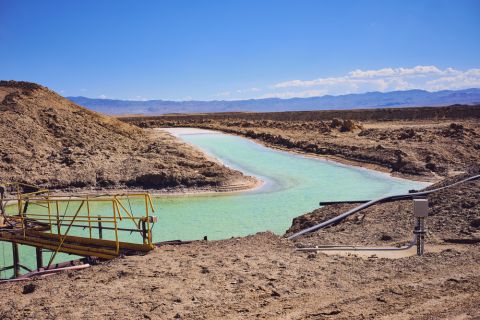Kazakhstan is set to lose at least a fifth of its oil production for a month after storm damage to export facilities, the energy ministry said on March 29, adding to concerns about global oil supplies and boosting crude prices.
The former Soviet republic will have to cut its oil output by 320,000 bbl/d, or 20%, until repairs are done to fully restore capacity of the Caspian Pipeline Consortium’s (CPC) Black Sea terminal, the ministry said in a statement.
Global supply outages and the war in Ukraine have pushed oil prices to near all-time highs as major producers struggle with capacity constraints. Brent crude futures were up 0.4% to $112.96 at 1255 GMT.
OPEC+, a global group of OPEC and non-OPEC producers, has come under increasing pressure to pump more crude since Russia, the largest producer in the group, invaded Ukraine on Feb. 24, and Western nations enacted sanctions in response that have curtailed Russian oil exports.
The Kazakh cuts are likely to be made at the expense of giant oil fields operated by Western oil majors such as the Chevron-led Tengiz, which has said it is already pumping below capacity due to the CPC limitations.
In an incident highlighting the Central Asian nation’s dependence on its former Soviet overlord Moscow, the CPC terminal near Russia’s Novorossiysk port was completely shut down briefly this month after a storm damaged its mooring-points.
The terminal which along with the 1,000-mile CPC pipeline pumps 80% of Kazakh crude exports, is now operating with just one of its three mooring-points, with repairs to the second expected to last until the end of April. The third is usually kept idle as backup.
CPC said in a separate statement on March 29 it was waiting for the weather to improve and building up a stockpile of equipment in order to begin the repairs. But it warned that sanctions against Russia could make further upkeep difficult.
“It is necessary to note that the main foreign equipment suppliers—Imodco, Blue Water and Gall Thomson Environmental Ltd.—have already notified CPC-R [the Russian arm of the consortium] that they would no longer cooperate with it and have canceled all the planned supplies despite the fact they CPC prepaid them in December 2021,” the company said.
Kazakhstan can offset some of the drop in CPC capacity by shipping crude across the Caspian Sea and then through the Baku-Tbilisi-Ceyhan pipeline, or diverting it to other pipelines leading to Russia and China, officials say.
However, the forced output cut, along with planned maintenance at the giant Kashagan Field later this year, will help Kazakhstan meet its OPEC+ commitments, the ministry said in a statement.
Kazakhstan has failed to cut its output in line with the deal, producing in excess of its quota, although it has said it would catch up this year.
Recommended Reading
E&P Earnings Season Proves Up Stronger Efficiencies, Profits
2024-04-04 - The 2024 outlook for E&Ps largely surprises to the upside with conservative budgets and steady volumes.
M4E Lithium Closes Funding for Brazilian Lithium Exploration
2024-03-15 - M4E’s financing package includes an equity investment, a royalty purchase and an option for a strategic offtake agreement.
Laredo Oil Subsidiary, Erehwon Enter Into Drilling Agreement with Texakoma
2024-03-14 - The agreement with Lustre Oil and Erehwon Oil & Gas would allow Texakoma to participate in the development of 7,375 net acres of mineral rights in Valley County, Montana.
California Resources Corp. Nominates Christian Kendall to Board of Directors
2024-03-21 - California Resources Corp. has nominated Christian Kendall, former president and CEO of Denbury, to serve on its board.
Jerry Jones Invests Another $100MM in Comstock Resources
2024-03-20 - Dallas Cowboys owner and Comstock Resources majority shareholder Jerry Jones is investing another $100 million in the company.





